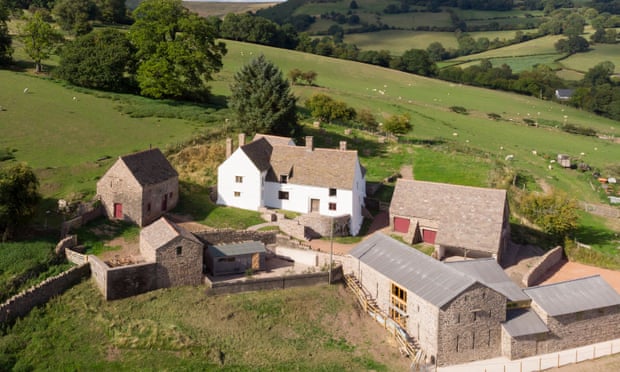A Welsh farmhouse that was once in such poor condition that rainwater ran through its rooms is in fact an exceptionally rare 600-year-old medieval hall house, it has been confirmed, after conservation experts used a groundbreaking new dating technique originally developed by climate change scientists.
Llwyn Celyn, which lies in the Black Mountains on the border of England and Wales, was completed in 1420, an analysis of its timbers found, making it one of only a tiny number of domestic buildings to survive from one of the most destructive periods in Welsh history, immediately following the failed revolt of the Welsh prince Owain Glyndŵr.
Conservation experts from the Landmark Trust, who first encountered the building in a perilous state of disrepair but still inhabited by two farmers in 2007, initially believed it dated from much later in the 15th century. But repeated attempts to date its ancient timbers with tree ring analysis failed, in part because the technique is less effective on trees that have grown in a wet climate.
Instead, they turned to a technique developed in the geography department at Swansea University. Never before used on an undated historic building, it analyses the oxygen, hydrogen and carbon isotopes preserved within the cellulose of a tree’s rings to determine the climate conditions in which the tree grew.
Each ring has a distinctive isotope signal, which can be used to determine very precisely the age of the timber, even on samples that would be undateable by conventional methods.
The new technique will potentially be "transformative" for the dating of historic buildings and timbers back to the arrival of the Romans, and potentially into the Bronze Age, according to Neil Loader, a professor of geography at the university.
